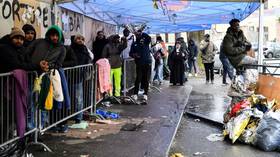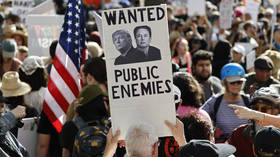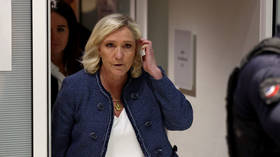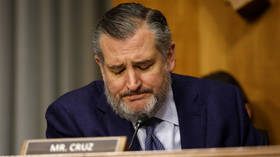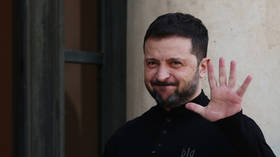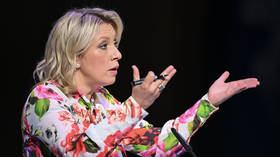Migrant flow to Europe is result of US, EU military ops in Middle East – Czech president
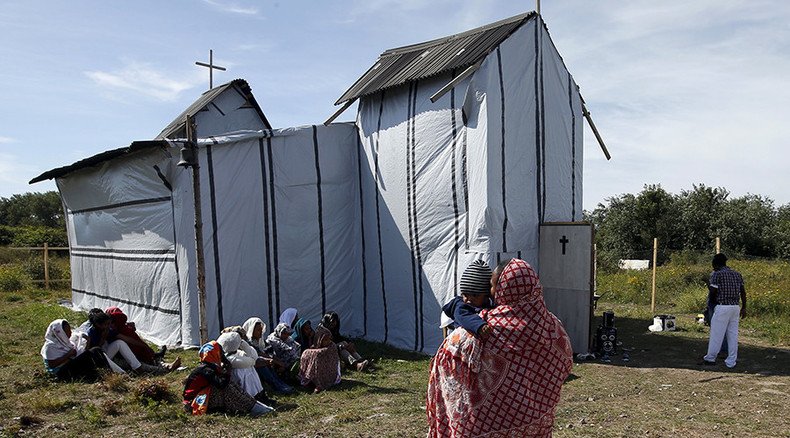
The flow of immigrants to Europe stems from the Western states’ military interventions in Iraq, Libya and Syria, which have contributed to the emergence of terrorist groups in the Middle East, Czech President Milosh Zeman told local media.
“The current wave of migration [to Europe] is rooted in the crazy [US] idea to launch an intervention in Iraq, which allegedly had weapons of mass destruction, but nothing was found,” Zeman said in a video interview with the Czech Repubic’s Blesk newspaper published on Sunday.
On top of this, the US’ desire to “restore order” in Libya and Syria only resulted in the escalation of conflicts in both countries and the emergence of terrorist organizations, prompting people to flee the area, Zeman said.
He added that not only the US was to blame for the migrant chaos, but its Western allies that helped to “coordinate operations in Libya” as well.
He announced his intention to speak at the regular session of the UN General Assembly later this year and propose that the UN create military units to destroy terrorist training camps.
READ MORE: Police use force to separate pro and anti-migrant rallies at British Eurotunnel terminal
Zeman also lashed out at immigrants on Sunday after tensions at a refugee detention center in the Czech Republic’s northeast prompted police to use tear gas. About 100 illegal immigrants waiting for deportation staged a demonstration on Friday, damaging the building of the center, according to local authorities.
"No one invited you here. But now you are here, you must respect our rules, as we respect the rules when we go to your country," the president said.
According to police, 3,018 illegal migrants have been intercepted by Czech law enforcement so far in 2015. The figure is almost 50% higher than in the first half of 2014.
Meanwhile, late on Saturday, about two hundred migrants, according to AP estimates, once again stormed the Eurotunnel terminal near the French port town of Calais in a bid to reach the UK. Police reportedly stopped the crowd by using a chemical irritant. More than a hundred attempts to enter the tunnel have been documented by security forces in this week alone. A man was fatally hit by a truck during one of attempts.
The chaos in Calais, where thousands of migrants have been making nightly attempts to access the Eurotunnel terminal, has shown “a system that is breaking down,” Morgan Johansson, the Swedish justice and migration minister, told BBC Radio 4’s World This Weekend.
He accused Britain of failing to “take the responsibility that they should,” and criticized Prime Minister David Cameron for the wording he uses with regard to migrants.
“I hear what he is saying about ‘illegal immigrants’ and ‘swarms’ and I think he is trying to divide people, that that is not a constructive way.”
The refugee camp set up near Calais, dubbed the “Jungle,” houses up to 10,000 immigrants. Xavier Bertrand, French MP and mayor of the northern city of Saint-Quentin, who is familiar with the situation, told RT the conditions at the camp “are severe.”
In light of the PM's comments yesterday, sharing this again. Which countries in Europe get the most asylum seekers? pic.twitter.com/G8XAHA7DkJ
— Refugee Action (@RefugeeAction) July 31, 2015
British Home Secretary Theresa May and French Interior Minister Bernard Cazeneuve have stressed that resolving the crisis and stopping the flow of immigrants is their “top priority,” Britain’s Sunday Telegraph and France’s Journal du Dimanche reported. The two top officials also urged to the EU to “address this problem at root.”
“We must break the link between crossing the Mediterranean and achieving settlement in Europe for economic reasons,” they added.
Under the Le Touquet treaty signed in 2003, the British border was moved to French Calais and British border control was stationed at French ferry terminals. This was done as part of an effort to close the infamous Sangatte refugee camp and stop the flow of illegal immigrants from reaching the UK to claim asylum.
French officials have made calls to scrap the agreement and move the border back to Dover and Folkestone. No official steps, however, have yet been taken.
In 2014, the UK received 31,400 asylum applications, while 63,100 were submitted to France and 81,300 to Sweden, according to data provided by the British Red Cross.



